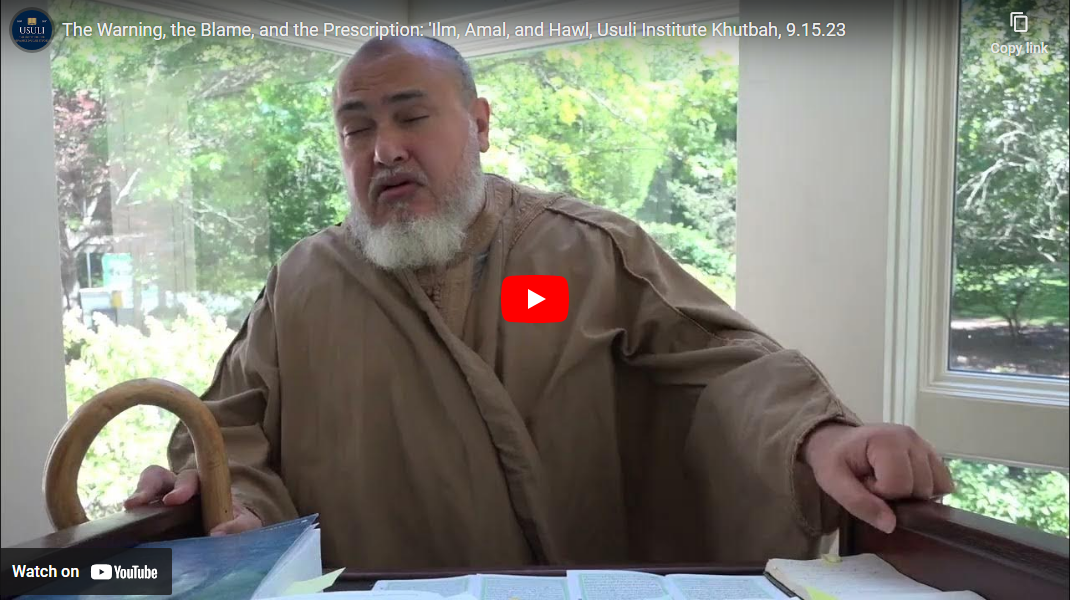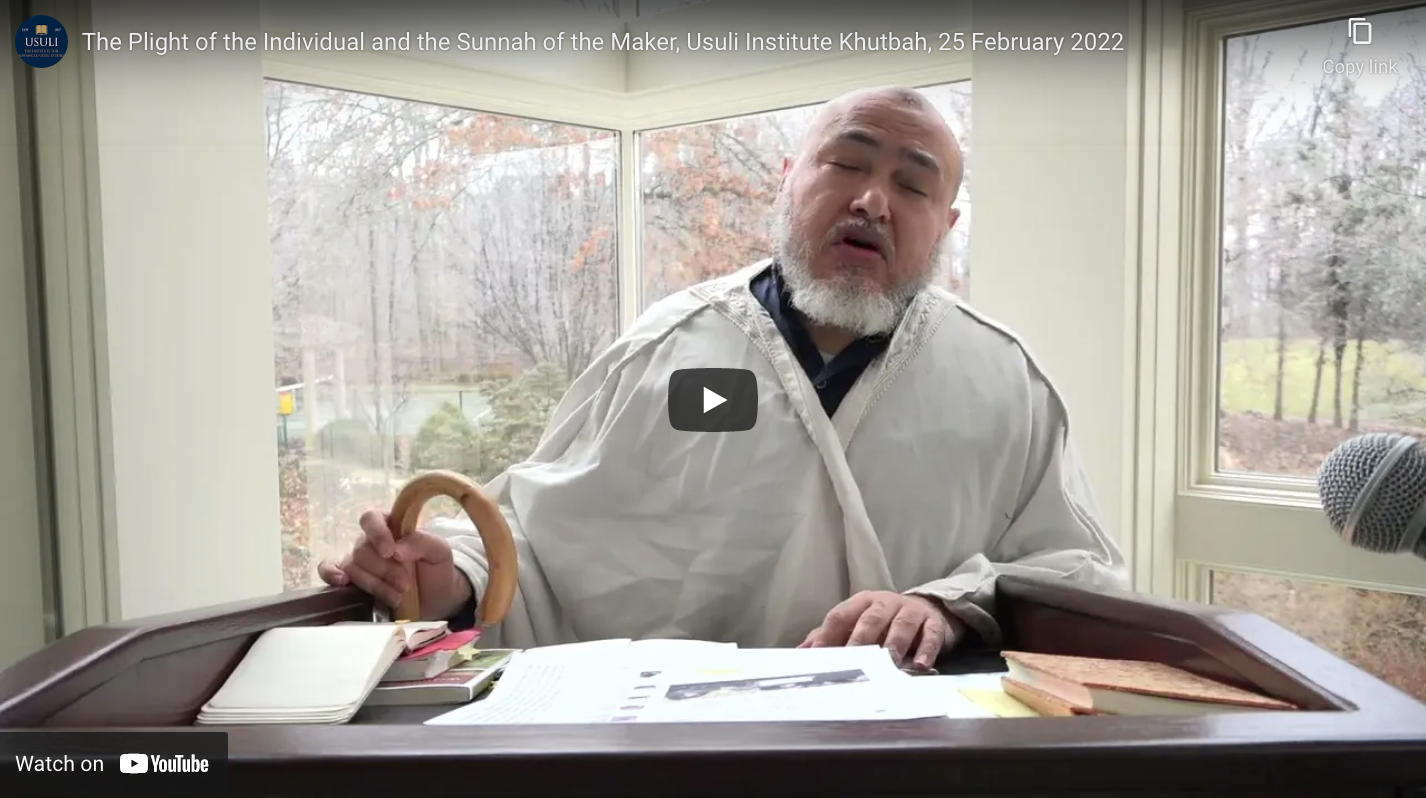Friday Khutbahs (Sermons) · 15. September 2023
On so many occasions in the Qur'an, God puts us on notice for something that, if we were people with any level of reflection and deliberation, we would already know innately and intuitively. God alerts us to the sheer capacity for ifsad—for corruption, spoliation, and exploitation—that human beings do, indeed, possess. In Surah al-Rum, God tells us that corruption has spread everywhere, and that the source of this corruption is human beings themselves through the exercise of their volition...
Friday Khutbahs (Sermons) · 25. February 2022
Often as major world events unfold, the simple reality is that as these events unfold and we witness human beings engaged in minor and major challenges, for a Muslim, what ought to be the reality is the constant, persistent voice of the Qur'an reminding, alerting and provoking. The voice of the Qur'an is the very agency of God in our living reality. Look at the simple challenge. In Surah Al Shams, when God reminds us of the nafs [soul/spirit] that God has created, and of the reality of fujoor...
Friday Khutbahs (Sermons) · 17. September 2021
God reminds us in Surah Al-Ra’d of a basic principle that is affirmed in different forms repeatedly throughout the Qur'an. After reminding us that nothing escapes God's knowledge and that nothing is beyond God's will, we find a very simple statement that holds the potential to have a truly transformative impact upon a human being: “Truly God alters not what is in a people until they alter what is in themselves” (Q13:11). In other words, God does not change a people until the people...
Friday Khutbahs (Sermons) · 21. June 2019
In this incisive and explosive khutbah, Dr. Khaled Abou El Fadl indicts the leadership of the Islamic Center of Southern California (ICSC) in their decision to censor and ban him from delivering the khutbah at the ICSC that day after he requested that they perform janaza prayers for President Muhammad Morsi, the slain democratically elected leader of Egypt. He shares the exchanges that led to his ban, and then elaborates on why their decision was not only wrong, but immoral and unethical....




